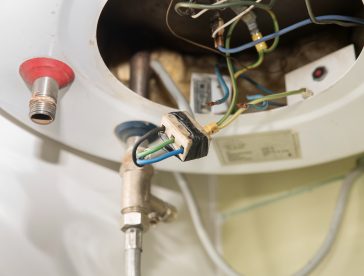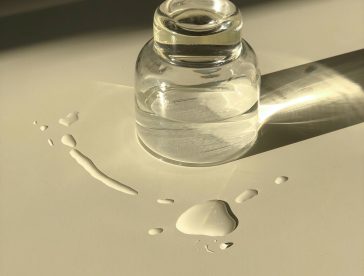
Why You Need A Plumbing Inspection Before Buying a House
Buying a house is an exciting milestone! It signifies a new chapter, filled with excitement and the anticipation of building a life in your own space.
But amidst the joy, remember that a sound investment requires careful consideration. While the aesthetics and amenities grab your initial attention, an equally crucial aspect is ensuring the home’s underlying systems are functioning properly. This is where a plumbing inspection before buying a house comes into play. A thorough evaluation by a licensed professional can uncover potential issues that may not be readily apparent, potentially saving you from costly surprises and giving you peace of mind in your new home.
Reasons for a Plumbing Inspection:
Identify Hidden Issues
While you can walk through a house and check the functionality of visible fixtures, a buyer’s ability to assess the overall health of the plumbing system is limited. Trained professionals, however, possess the expertise and tools to uncover hidden problems that could cause significant headaches down the road. These issues can include:
- Leaking pipes: Leaks hidden behind walls, under floors, or even underground can lead to extensive water damage and mold growth, often going undetected for months until significant damage has occurred.
- Deteriorated or outdated plumbing materials: Older homes may have plumbing constructed with materials prone to corrosion, rust, or other issues that could lead to sudden failures. A plumbing inspection before buying a house can identify such materials and assess their remaining lifespan.
- Septic system problems (if applicable): If the property utilizes a septic system, an inspection can reveal potential problems like clogged drain fields or malfunctioning pumps, preventing costly repairs post-purchase.
Avoid Costly Surprises
Unexpected plumbing emergencies are not only inconvenient, but they can also be incredibly expensive to fix. By identifying potential issues during an inspection, you can:
- Budget for potential repairs before purchase: Knowing the extent of necessary repairs allows you to factor them into your overall purchase decision and budget accordingly.
- Negotiate the purchase price based on findings: The inspection report can serve as a valuable bargaining chip when negotiating the final sale price, potentially saving you thousands of dollars.
Peace of Mind and Long-Term Investment:
Plumbing emergencies can be stressful and disruptive, causing water damage, forcing temporary relocation, and incurring significant repair costs. A thorough plumbing inspection before buying a house offers peace of mind by:
- Reducing the risk of water damage and mold growth: Identifying and addressing potential leaks prevents costly repairs and the potential health hazards associated with mold growth.
- Increasing homeownership satisfaction: Knowing your home’s plumbing is in good condition provides peace of mind and allows you to focus on enjoying your new space without the worry of unforeseen plumbing problems.
What a Plumbing Inspection Covers
A plumbing inspection typically involves a visual examination of your home’s plumbing system, followed by potential additional tests depending on the inspector’s findings. Here’s what you can expect:
- Visual Inspection: The inspector will examine all accessible plumbing components, including:
- Water pressure and flow: They will check if water pressure is within acceptable ranges and flow rates are adequate throughout the house.
- Fixture functionality: They will test the functionality of sinks, toilets, showers, and bathtubs, ensuring proper water flow and drainage.
- Drain lines and sewer system: The inspector will visually inspect accessible drain lines for any leaks, blockages, or signs of deterioration. Additionally, they may use a camera to examine the main sewer line for hidden issues.
- Water heater condition: The inspector will assess the condition of the water heater, including its age, functionality, and potential safety hazards.
- Material types and potential concerns: The inspector will identify the types of plumbing materials used throughout the house and highlight any potential concerns associated with specific materials, such as lead pipes.
It’s important to note that the specific scope of the inspection, including additional tests like camera inspections, may vary depending on the age of the home, the complexity of the plumbing system, and the inspector’s recommendations.
Questions to Ask Your The Plumber Performing Your Inspection
General
- What is the overall condition of the home’s plumbing system?
- Are there any major repairs or replacements that are needed in the near future?
- Did you find any leaks or potential problems that could lead to future leaks?
- Are there any outdated or potentially hazardous materials used in the plumbing system (e.g., lead pipes)?
- What is the estimated lifespan of the water heater and any other major plumbing components?
Specifics
- What is the water pressure like throughout the house, and is it within acceptable ranges?
- Do you see any signs of corrosion or rust on the pipes?
- Do any of the fixtures (sinks, toilets, showers) show signs of wear and tear or potential malfunction?
- Have you identified any potential issues with the drain lines or sewer system?
- What type of maintenance should be performed on the plumbing system on a regular basis?
Cost and Negotiation:
- Based on your findings, what is your estimated cost for any necessary repairs or replacements?
- Are there any preventative measures I can take to avoid future plumbing problems?
- If I need to negotiate repairs with the seller based on your findings, are you willing to provide a detailed report outlining the issues and estimated costs?
Additional:
- Do you offer any warranties or guarantees on your work?
- Can you provide me with references from previous clients?
- Do you have any recommendations for reputable plumbers for future maintenance needs?
Remember, asking questions is crucial to understanding the condition of your home’s plumbing system and making informed decisions about repairs and future maintenance.
Invest in Peace of Mind with Landa Plumbing for Your Pre-Purchase Inspection
Buying a house is a thrilling experience, but neglecting essential inspections can quickly turn excitement into worry. A plumbing inspection before buying a house is an investment that yields significant benefits:
- Uncovers hidden issues: Trained professionals from Landa Plumbing can detect potential problems lurking behind walls or underground, preventing future costly surprises and inconveniences.
- Saves money in the long run: Identifying potential repairs upfront allows you to factor them into your budget or negotiate with the seller, potentially saving thousands of dollars.
- Provides peace of mind: Knowing your plumbing system is in good condition offers tranquility and allows you to focus on enjoying your new home without the constant worry of unexpected leaks or emergencies.
Don’t let hidden plumbing issues disrupt your dream of homeownership. Schedule a plumbing inspection before buying a house with Landa Plumbing. Our licensed and qualified professionals will thoroughly assess your prospective home’s plumbing system, identify potential concerns, and empower you to make informed decisions for a secure and comfortable future in your new haven.


